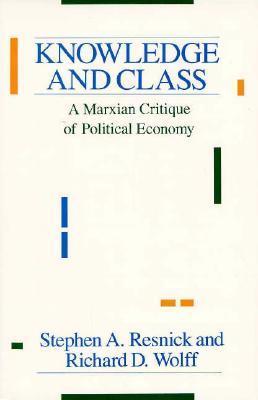I truly mean it when I say that this book has given me a lot to think about. With that said, not all of it leads to a positive assessment of the work as a whole.
I think Resnick and Wolff's arguments critiquing essentialist Marxist epistemologies is very persuasive, and an argument that needs to be made more often. Furthermore, the anti-essentialist epistemology they propose, with its use of the concept of overdetermination (heavily influenced by Althusser and Freud) was to me a legitimately new approach to understanding class and other social processes. I found the first two chapters to be particularly thought-provoking for these reasons, and it has made me want to re-read many of Marx's texts to see how they arrive at this reading.
It is in the latter chapters that I started to have more and more critiques; maybe it is because I find this anti-essentialist argument to be so personally new, but I had a somewhat hard time understanding just how to apply this method of understanding in context. I also found it hard at times to shake off what might be considered an "essentialist" understanding of certain classical Marxist concepts, and was not always convinced by their arguments against such an understanding (particularly in their analysis of the state). Furthermore, at least one of their mathematical equations they use in their analyses is incorrect- I don't know if it is a printing error or if they genuinely miscalculated, but it shook my willingness to follow their argument once I spotted it. I think ultimately the mathematical error didn't detract from their larger points, which is why I think I'll be mulling over their arguments from this book for what might be a while.

